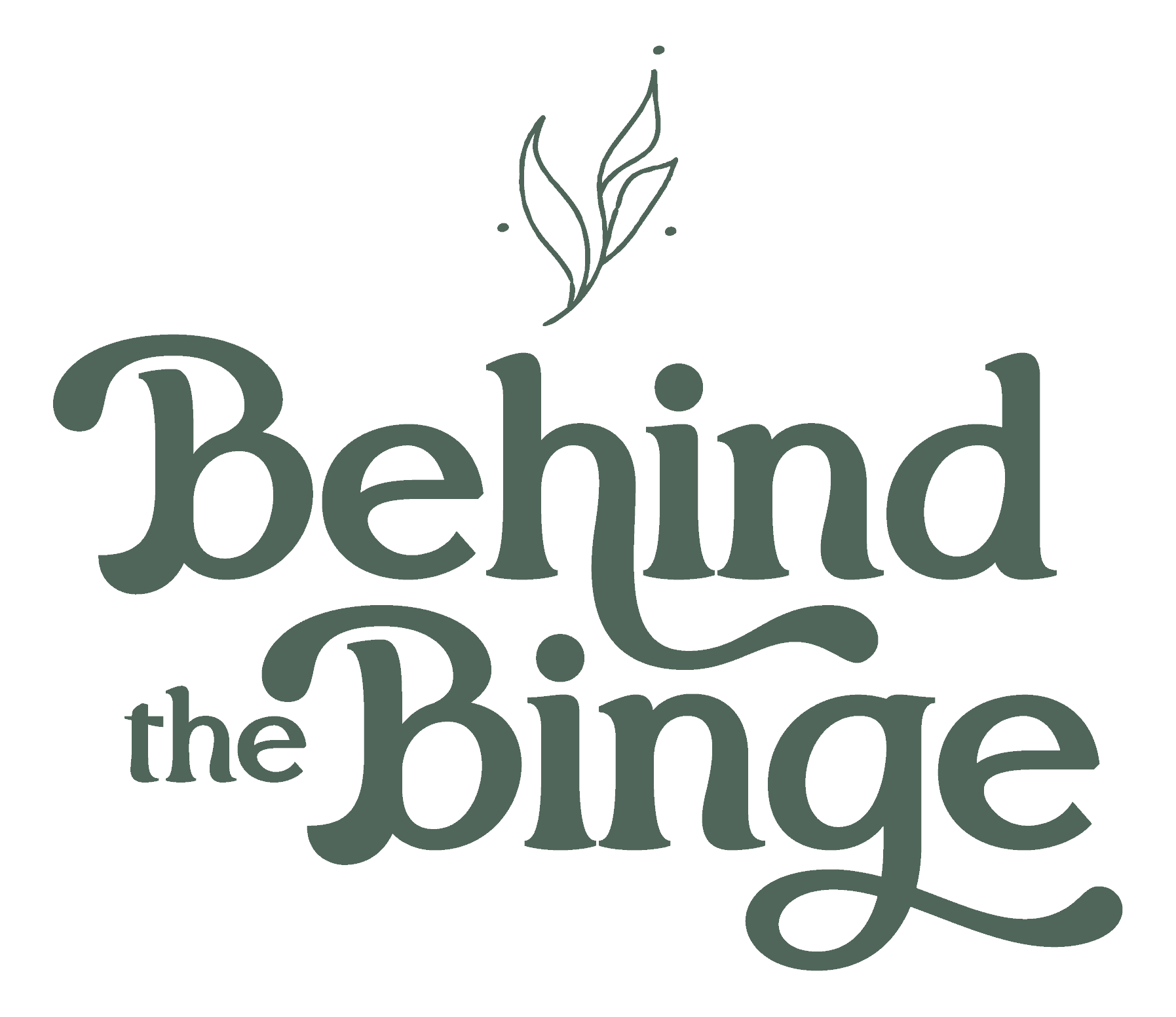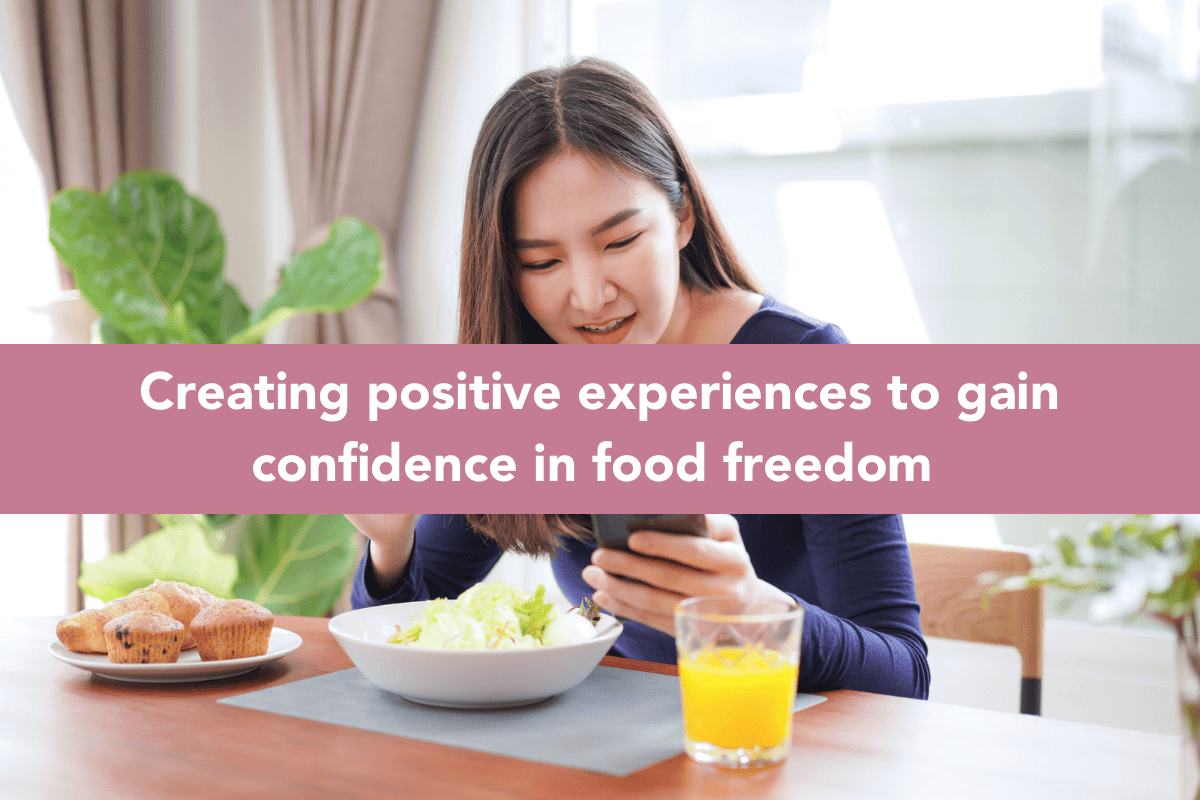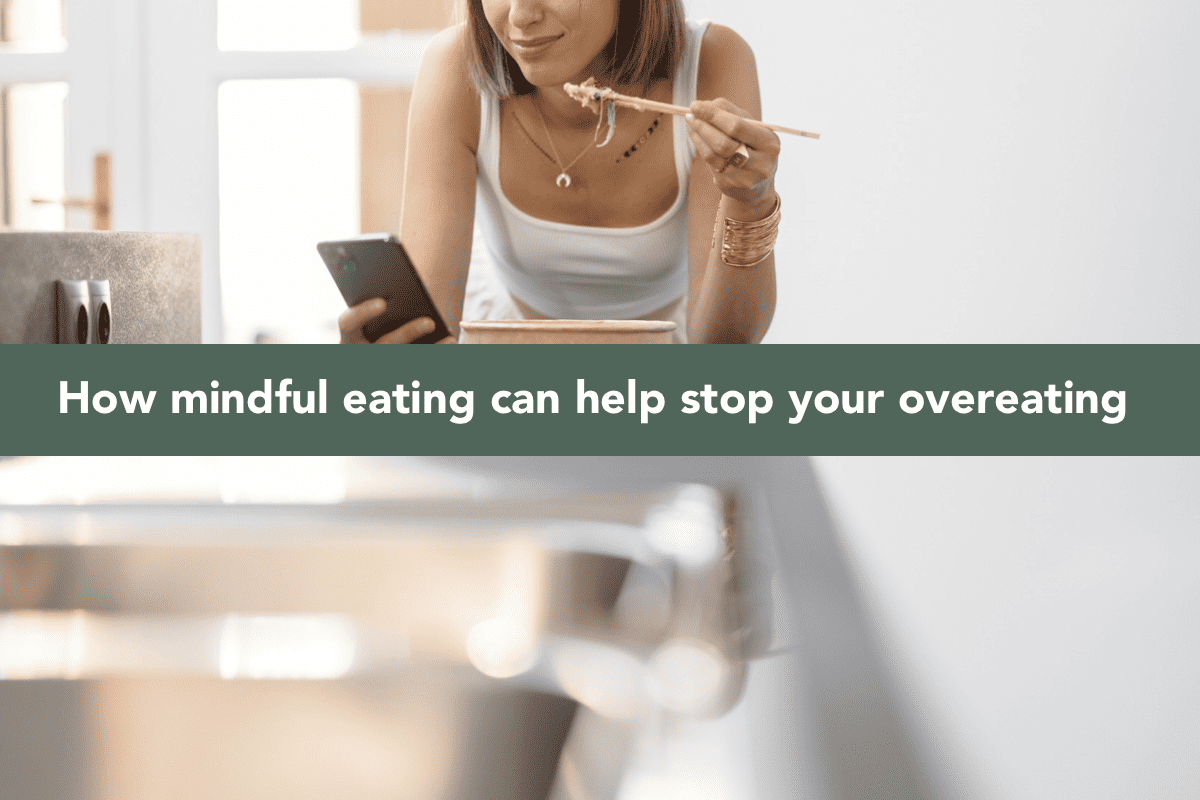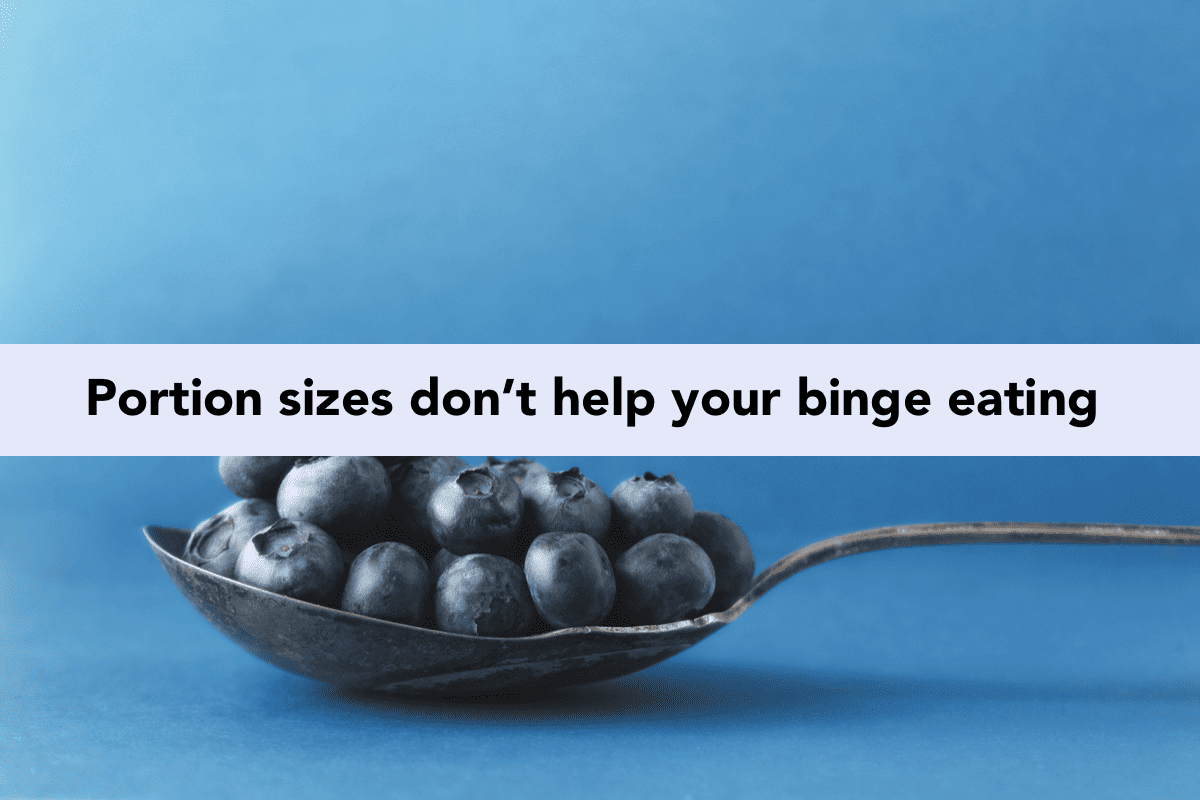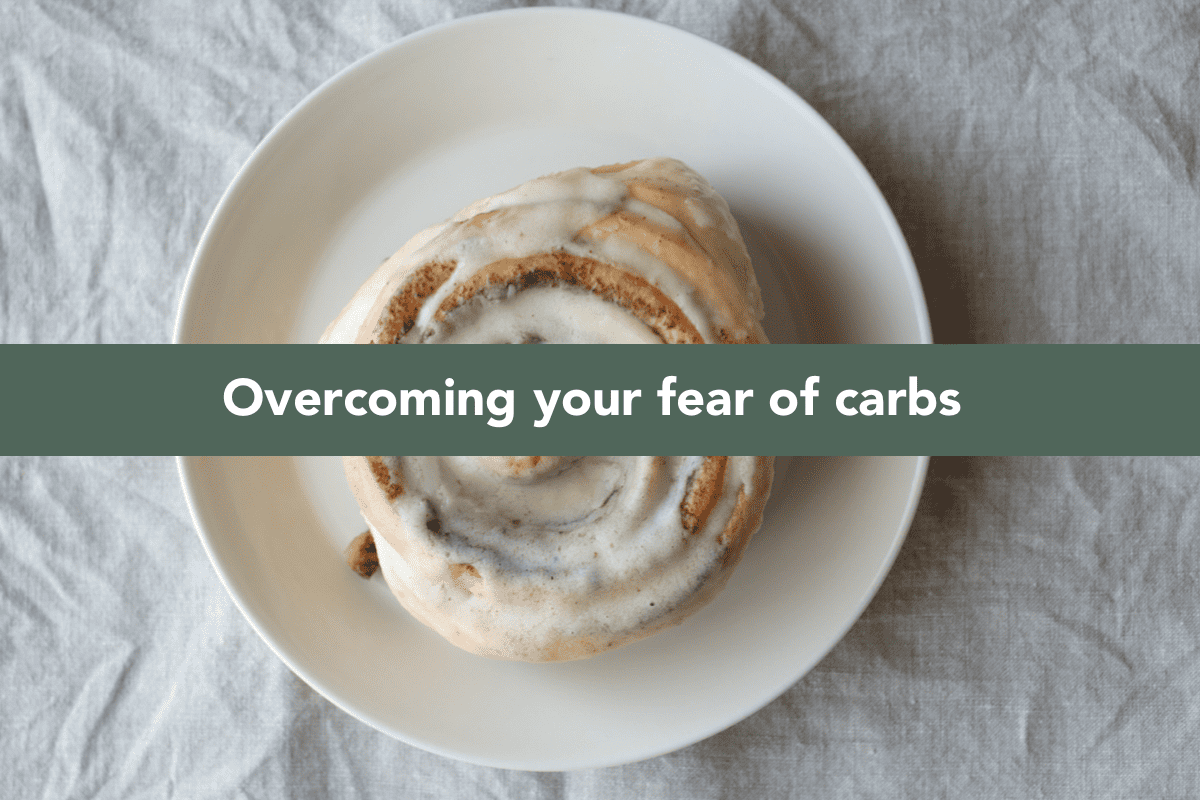Mindset is the foundation of binge eating recovery. Without working on your mindset, you cannot find full remission. What you believe becomes your thoughts and emotions, which becomes your actions. So if you want to stop binge eating (action), you have to address how it all began (beliefs).
Mindset work can easily be brushed off , because it seems kind of “woo-woo,” spiritual, or magical. I know it can feel very cheesy to talk about positive affirmations and working on being more kind to yourself. But mindset work is much more than just saying “I am beautiful.” It’s cultivating a belief that you ARE beautiful. Because you won’t be able to create change in your life if your inner bully is winning every time. In order to begin to cultivate a better mindset around food and your body, you have to really understand where your limiting beliefs stem from and challenge them. Challenge them, create new thoughts, repeat them, and create new automations in your brain to the same stimuli (ummm–what now?).
Let’s use carbs as an example because it’s associated with a classic diet culture rule. So when you’ve been given the choice to eat carbs (the stimulus) maybe you’ve always thought “carbs are bad” (the automatic response). If you have this automatic thought, it’s going to be hard to simply ignore it and eat carbs anyway. This is because your deep rooted belief system is that carbs are bad. But, now that you’re healing your relationship with food and realizing that you do need carbs and they’re an important part of a healthful life, you must work on reframing this old belief pattern or automatic response. So for example, you would work on reframing your automatic response from “carbs are bad” to “carbs are more than okay to eat.” Then repeat this every single time you’re eating carbs to strengthen this new automatic response you are trying to create.
So why exactly does this work? This works because we have something called neuroplasticity. Neuroplasticity is basically the ability for our brain to change. I’m going to get science-y for a minute, but hang with me. When we learn something new, we are creating or strengthening a neural pathway. “Neural pathways are the basis of your habits of thinking, feeling, and acting. They are what you believe to be true and why you do what you do.” Think about when you’re driving and are able to zone out while listening to music and still end up getting to where you need to be. This is because you’ve strengthened a pathway in your brain through repetition, that now it’s automatic. Now let’s say you’ve driven an automatic car your entire life and now you need to learn how to drive a manual. You will likely have to turn off the music and really focus on shifting gears. You will mess up, and you will sometimes try to accelerate like you did in an automatic car because of your old pathway; but with time you will strengthen this new neural pathway from driving the manual car and it will become another automatic response in your life.
So let’s apply that same logic to your thoughts, if you have been stuck in a negative thought pattern for a really long time, that neutral pathway has strengthened, which then impacts how you feel and act. But, just like you can learn to drive manual, even if you’ve driven automatic your entire life, neuroplasticity allows you to transform those thoughts and create a new automatic thought.
I know you’ve been taught a lot of misinformed things around food and health. From society and generations before you, you may have been taught to believe that gaining weight is inherently bad, that eating sugar will give you diabetes, and that health is simply a matter of self control. You have been conditioned to believe these things so deeply (because of constant reinforcements) that there are neural pathways composed of these patterns. For example, if you see a fat person, your neural pathway filled with diet culture will be activated and your automatic thought might be to think they are unhealthy. Or you are offered a muffin at work, the same neural pathway is activated and you deny yourself the muffin because ”carbs are bad.”. So, when you finally begin to try to break free from these pathways and heal your relationship with food and your body, you’re gonna have that voice in your head automatically coming up and stating those previous beliefs.
Are you following?
It’s one thing to say, “Okay, now I’m ready to find food freedom and learn to listen to my body” and know, factually, that these diet culture thoughts aren’t true. And it’s a completely different beast to actually face and challenge those thoughts every time they are activated when you go to eat a certain food or look in the mirror.
If you just try to push the old unhelpful thought away, and don’t actually address the thought, then you’re not actually reprogramming your brain. Instead you’re just trying to ignore the automatic program that’s already there. To actually use your neuroplasticity to reprogram the neural pathways, you actually have to change the pathway or create a new one. Which is going to take some time and some awareness, just like if you were learning to drive a manual car for the first time. It’s never really about completely ignoring these old thoughts, but creating new, more helpful and positive thoughts that eventually just becomes second nature to you.
This is why positive affirmations are not just a hippy-dippy thing, they are scientifically validated. However, you want the words that you’re speaking to yourself to actually land for you, meaning to actually sound true. It doesn’t work to just wake up and say, “I love myself, I am beautiful, I’m hot, I’m perfect!” If you don’t believe have the slightest belief of this and end up rolling your eyes. It needs to feel true for you. For example, “My body deserves respect” might land better for you than “I love my body.. Then slowly but surely, as you build your confidence in that statement and really start to create that as a more solid thought for yourself, you can create more positive and helpful thoughts. So you don’t want to reframe your thoughts to a level that is just unbelievable, you want to reframe your thoughts into something that’s realistic, and actually sounds like something you would say to yourself.
So I want you to take a moment and think about what unhelpful automatic thought patterns you have. How can you challenge these thoughts and create, new more helpful thoughts? How can you repeat these new thoughts to create new neural pathways in your brain? As you move toward a life of food freedom, it will take repetition. But the more you do it, the stronger the new beliefs will get, and the quieter the old belief systems will be. It is totally possible. Mindset is the foundation to full food freedom for life. Because if we don’t change our mindset, we’re not really changing how this all came about in the first place.
Reviewed and Edited by Kaitlyn Allen MS, MEd, MS, RD
If you’re ready to heal your relationship with food and your body. you’re in the right place! Enroll in my FREE masterclass: How to Face Your Fears to Find Binge Freedom!
